The new crop of women entrepreneurs in the BioRegion
<p>Thirty-one percent of the CEO's and founders of companies in the healthcare sector created in Catalonia since 2018 are women, a much higher percentage than in previous years. Let’s learn about these professionals who are contributing to reversing the trend.</p>

If we analyze all the active companies in the BioRegion of Catalonia in all the subsectors, 1 out of every 5 CEO's and founders (19%) are women. This percentage is similar if we only consider medical and digital health tech companies; it is slightly higher (22%) among biotech companies and much lower in pharmaceutical companies (13%). Women are still far from parity, but the figures from the BioRegion - based on data from Biocat– are reason for optimism if we compare them with international figures: fewer than 8% of biotech companies in the world have a women CEO according to a study by Liftstream.
Therefore, all signs seem to indicate that the health entrepreneurship sector is on its way to equality. The increasing presence of women among the founders and executive teams of the new start-ups in the sector is gaining ground if we only analyze the companies founded since 2018, in which women now account for one out of every three CEO’s and founders (31%), a percentage which reaches 33% in biotech companies.
Who are the women entrepreneurs that are contributing to reversing the trend? Do they think that being women has meant more obstacles to overcome along the way? Or the opposite: Do they think it has given them an advantage? Is it easy to combine entrepreneurship and motherhood? Biocat wanted to find out their answers.
Marta Barrachina
CEO and co-founder of ADmit Therapeutics
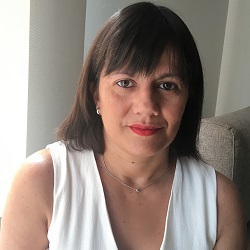 After 20 years in biomedical research, in 2018 Marta Barrachina co-founded ADmit Therapeutics, a spin-off of IDIBELL where she is the CEO. They are developing the first blood test for early diagnosis of Alzheimer, geared towards patients with cognitive decline, that detects a series of innovative biomarkers using mass-sequencing techniques. “It could be highly useful for better selecting patients for clinical trials and, therefore, help identify a drug that is effective against this disease,” she highlights.
After 20 years in biomedical research, in 2018 Marta Barrachina co-founded ADmit Therapeutics, a spin-off of IDIBELL where she is the CEO. They are developing the first blood test for early diagnosis of Alzheimer, geared towards patients with cognitive decline, that detects a series of innovative biomarkers using mass-sequencing techniques. “It could be highly useful for better selecting patients for clinical trials and, therefore, help identify a drug that is effective against this disease,” she highlights.
Gender, Barrachina says, has never been an obstacle for her. “I’ve come up against more disadvantages from being a scientist than from being a woman,” she confesses. “I believe in CEOs with a science background, which is a much-needed figure in biomedicine-based start-ups. We have to teach scientists a lot about the business world, and investors and innovation units at research centers a lot about the management skills of scientists. Fortunately, the success of a company like ours isn’t about gender, but about how it is managed, funded and, above all, its science,” she notes.
Anna Sort
Co-founder of ALVUM
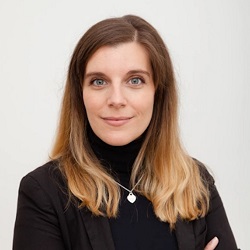 Anna Sort is a nurse with a Master’s degree in Cognitive Systems and Interactive Media who joined the world of entrepreneurship in order to improve patient experience in fields like education and adherence to treatment. In 2018, Anna Sort co-founded ALVUM to improve the experience for people with digestive problems. Specifically, the company has created a solution for people with food intolerances that, in 7 weeks, identifies whether they have an issue and with which foods.
Anna Sort is a nurse with a Master’s degree in Cognitive Systems and Interactive Media who joined the world of entrepreneurship in order to improve patient experience in fields like education and adherence to treatment. In 2018, Anna Sort co-founded ALVUM to improve the experience for people with digestive problems. Specifically, the company has created a solution for people with food intolerances that, in 7 weeks, identifies whether they have an issue and with which foods.
“Being a woman has given me access to specific courses for female entrepreneurs, like those at Barcelona Activa, for example. However, in technology, women still have to prove themselves much more than men,” Anna Sort laments. “For example, various studies show that investors tend to invest less and with harsher conditions if the business is led by a woman. The situation is better than it was in the past, but we still have a long way to go,” she warns.
Ivelisse Sánchez
Co-founder and CSO of Biointaxis
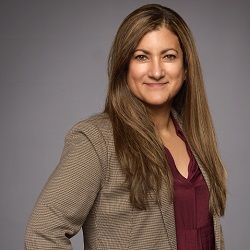 Ivelisse Sánchez was a professor and physician at the University of Boston and Harvard Medical School and did research into neurodegenerative disorders before co-founding Biointaxis, a translational research company for clinical therapies for neurodegenerative diseases, where she is CSO.
Ivelisse Sánchez was a professor and physician at the University of Boston and Harvard Medical School and did research into neurodegenerative disorders before co-founding Biointaxis, a translational research company for clinical therapies for neurodegenerative diseases, where she is CSO.
“I believe that, as women and individuals, we bring our own take on how to tackle situations and resolve the problems we have to face in the business world as professionals. Maybe women are more used to looking at a situation from several points of view at the same time and in the long term. I think that is an advantage in any professional environment, especially when it goes along with an equal level of experience and skill,” Sánchez explains. “One disadvantage could be that women aren’t widely represented in positions of power in the business world and their opinions don’t hold the same weight yet. It’s clear that more companies are recognizing the value-added gained from having board members with different perspectives,” she says.
María Eugenia Martín Hidalgo
CEO and co-founder of ColorSensing
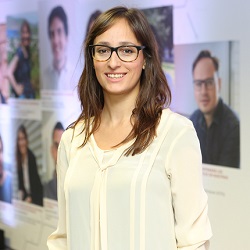 Maria Eugenia Martín studied Industrial engineering and Business management and then worked at industrial companies and in project management until she did d·HEALTH Barcelona, the program promoted by Biocat to train future healthcare entrepreneurs. A contact from the program put her in touch with a researcher at the University of Barcelona, who she co-founded the spin-off ColorSensing with in 2018. The company is developing applications based on correcting and measuring color in digital images using their proprietary algorithms. Their first product, FoodSensing, helps packaged-food manufacturers and distributors reduce waste and ensure the quality and safety of their products with a smart label that monitors its freshness throughout the supply chain.
Maria Eugenia Martín studied Industrial engineering and Business management and then worked at industrial companies and in project management until she did d·HEALTH Barcelona, the program promoted by Biocat to train future healthcare entrepreneurs. A contact from the program put her in touch with a researcher at the University of Barcelona, who she co-founded the spin-off ColorSensing with in 2018. The company is developing applications based on correcting and measuring color in digital images using their proprietary algorithms. Their first product, FoodSensing, helps packaged-food manufacturers and distributors reduce waste and ensure the quality and safety of their products with a smart label that monitors its freshness throughout the supply chain.
“I don’t think there are advantages or disadvantages that come with being a woman in the business world. But there may be some situations we look at differently because we are different,” explains Martín. “If I had to say something that I think is critical about being a woman it is how you deal with motherhood while setting up a company at the same time. But this is something many women have had to deal with for years now outside of the start-up ecosystem,” she notes.
Lorena Jané Buxó
CEO of DICUS
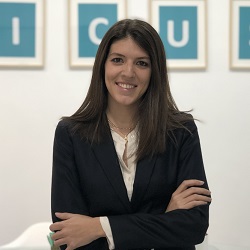 Lorena Jané did a double degree in Law and Business management and administration at ESADE. After internships in law, transactions and finance, she embarked on the DICUS project because she discovered a need among the doctors in her family. DICUS is the first communication network exclusively for physicians that allows them to communicate securely, efficiently, quickly and legally, both in and out of the hospital.
Lorena Jané did a double degree in Law and Business management and administration at ESADE. After internships in law, transactions and finance, she embarked on the DICUS project because she discovered a need among the doctors in her family. DICUS is the first communication network exclusively for physicians that allows them to communicate securely, efficiently, quickly and legally, both in and out of the hospital.
“In the business world, being a woman and being young often means I have to work harder to prove my worth. I’ve found that men are the majority in the upper echelons of medicine, but little by little women are starting to find their place. I’ve also met lots of people willing to make room for me and help promote the project,” says Jané.
Núria Pastor Hernández
CEO and co-founder of HumanITcare
 After several experiences in the business world and clinical research, in 2018 Núria Pastor co-founded HumanITcare, where she is CEO. HumanITcare is a solution that uses big data to monitor chronic diseases remotely in order to improve clinical results for patients and cut costs. The platform, which is certified as a medical device, collects data from various devices and sensors during the patient’s daily life, and uses artificial intelligence to remotely monitor their health. The platform gives hospitals access to real-time data on the cost of appointments and predicts relapses to avoid hospitalization.
After several experiences in the business world and clinical research, in 2018 Núria Pastor co-founded HumanITcare, where she is CEO. HumanITcare is a solution that uses big data to monitor chronic diseases remotely in order to improve clinical results for patients and cut costs. The platform, which is certified as a medical device, collects data from various devices and sensors during the patient’s daily life, and uses artificial intelligence to remotely monitor their health. The platform gives hospitals access to real-time data on the cost of appointments and predicts relapses to avoid hospitalization.
“Being an entrepreneur has made me more aware of the real problems facing women in the business world, but it has also made me see that there is a segment of the population that supports us and that there are many women who are an example to follow for those to come,” Pastor celebrates.
Montse Sánchez Povedano
CEO of Mind Identity
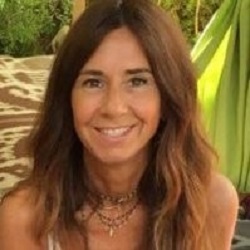 20 years ago, Montse Sánchez founded ITA, a care network to treat eating disorders. She is also currently CEO of Mind Identity, a new spin-off of the University of Barcelona that has developed a new digital platform to view how a person sees themselves (their mental map) and those around them.
20 years ago, Montse Sánchez founded ITA, a care network to treat eating disorders. She is also currently CEO of Mind Identity, a new spin-off of the University of Barcelona that has developed a new digital platform to view how a person sees themselves (their mental map) and those around them.
“I can’t say being a woman has been a disadvantage at any point in my career as an entrepreneur. All these years, I’ve channeled my efforts and innovativeness into a predominately female professional team and group of patients. They have responded with great trust and respect,” Sánchez celebrates. “It is important for women to be more and more present in the entrepreneurial arena. It is a good path for valorizing our sensitivity, ability to work hard, creativity and team-building skills, making room for other women and enriching collaboration models,” she concludes.
Marta Guardiola
Co-founder and CTO of MiWEndo Solutions
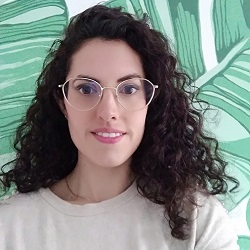 Marta Guardiola studied Telecommunications engineering at the Polytechnic University of Catalonia and, after doing a PhD and postdoc on microwave endoscopic imaging, she co-founded MiWEndo Solutions as a result of this research. The company, with Ignasi Belda as CEO, is developing a medical device to improve early diagnosis and prevention of colorectal cancer.
Marta Guardiola studied Telecommunications engineering at the Polytechnic University of Catalonia and, after doing a PhD and postdoc on microwave endoscopic imaging, she co-founded MiWEndo Solutions as a result of this research. The company, with Ignasi Belda as CEO, is developing a medical device to improve early diagnosis and prevention of colorectal cancer.
“My main challenge right now as a woman entrepreneur and mother is balancing work and family. Personally, I haven’t found any advantages or drawbacks from being a woman, but I have seen a lot of inequality. The number of women in technical degrees, executive positions, women who lose their job or whose options for professional growth are limited because they are mothers...” Guardiola laments. “For that not to happen, we have a lot of work to do in education and the legal framework. So being a woman doesn’t make things more difficult than being a man, and we can each choose our future freely,” the entrepreneur believes.
Caty Cases
Co-founder of NeuroHeal Biomedicals
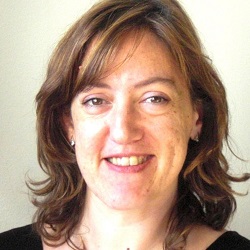 Caty Cases researches pathologies of the nervous system, is a professor of Medical physiology at the Autonomous University of Barcelona and co-founder of NeuroHeal Biomedicals. NeuroHeal is a neuroprotective drug that can speed up regeneration of the nervous system, designed with an innovative drug-discovery platform based on artificial intelligence and the use of biological systems as therapeutic targets.
Caty Cases researches pathologies of the nervous system, is a professor of Medical physiology at the Autonomous University of Barcelona and co-founder of NeuroHeal Biomedicals. NeuroHeal is a neuroprotective drug that can speed up regeneration of the nervous system, designed with an innovative drug-discovery platform based on artificial intelligence and the use of biological systems as therapeutic targets.
“Right now, I don’t think being a woman has put me at a disadvantage. But I have been surprised to see how some men’s attitude changes when there’s money on the table, or possible gains in a power struggle,” Cases confesses. “I would perhaps highlight greater difficulties in making transfer tasks visible in our immediate surroundings, although there are also initiatives like this post or other interviews that help raise visibility of female entrepreneurs to cover this shortcoming.”
Valerie Vanhooren
Co-founder and CEO of ONA Therapeutics
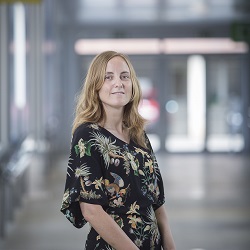
After getting her PhD in Biotechnology, Valerie Vanhooren worked at several pharmaceutical companies as a project leader and was head of R&D at ProteoDesign before founding ONA Therapeutics, a spin-off of ICREA and IRB Barcelona set up in 2019 with researcher Salvador Aznar-Benitah. Ona Therapeutics is developing therapeutic biological drugs targeting the cells that start metastasis of a tumor and lipid metabolism, and has recently closed a €20-million round of funding.
Despite this number, Vanhooren admits that “sometimes it’s hard to get people to take female entrepreneurs seriously, as many people aren’t used to a young woman leading a company, above all during executive meetings. But once they get to know us, this prejudice ends quickly,” the entrepreneur explains. “In fact, I think being a woman can be an advantage for leading a team, because we understand group dynamics easily and can combine our intelligence in science and business with emotional intelligence.”
Paula Petrone
Founder of Phenobyte
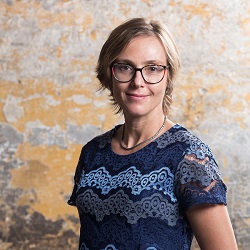 Paula Petrone has a PhD in Biophysics from Stanford University and her vocation is using analytic methods to analyze data from the biotech, healthcare and pharmaceutical sector to improve patients’ lives. Before founding Phenobyte, she worked at several pharmaceutical corporations and as a consultant and director of data science and artificial intelligence at several start-ups. Phenobyte is developing advanced analytics and data engineering methods to improve health and the healthcare system.
Paula Petrone has a PhD in Biophysics from Stanford University and her vocation is using analytic methods to analyze data from the biotech, healthcare and pharmaceutical sector to improve patients’ lives. Before founding Phenobyte, she worked at several pharmaceutical corporations and as a consultant and director of data science and artificial intelligence at several start-ups. Phenobyte is developing advanced analytics and data engineering methods to improve health and the healthcare system.
“Unfortunately, there are very few of us female entrepreneurs and fewer still in the technology sector,” Petrone recognizes. Right now, the sector is starting to recognize the urgent need for gender diversity and I’m getting a lot of help from people who believe in our project, giving us visibility, encouragement, support and mentoring. So far, being a woman, and a mother of two, hasn’t been a disadvantage. We have to keep working to build an ecosystem with gender equality that encourages women so there will be more and more of us.”
Maria Cabello
CSO of RheoDX
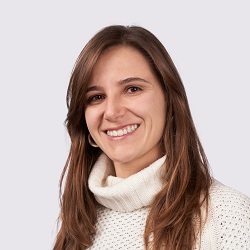 Maria Cabello began her career with the final project for her Master’s degree at IMB-CNM, where she studied Microfluidics, and then got her PhD with a thesis in the Power electronics group. She is currently CSO of RheoDX, a start-up created in 2018 promoted by the Mobile World Capital Barcelona foundation that is developing a portable device for in vitro diagnosis to study the elastic properties of blood cells and detect anomalies quickly and affordably with a single drop of blood.
Maria Cabello began her career with the final project for her Master’s degree at IMB-CNM, where she studied Microfluidics, and then got her PhD with a thesis in the Power electronics group. She is currently CSO of RheoDX, a start-up created in 2018 promoted by the Mobile World Capital Barcelona foundation that is developing a portable device for in vitro diagnosis to study the elastic properties of blood cells and detect anomalies quickly and affordably with a single drop of blood.
“In my time as a researcher, I’ve sometimes been the only woman in a group of over 20 people. This ultra masculinized, macho world, without me even realizing, has led me to seek help outside, to be more decisive, to have more contact with other people and research groups, which has helped my work, how I relate to people and, above all, has made me much more multidisciplinary, all of which are qualities that are valued highly in the entrepreneurial world.” explains Cabello.
“On an international level, being a woman in a man’s world has allowed me to meet lots of people, and for them to remember me. Contacts that in many cases have given rise to scientific collaborations,” she says. “But on many other occasions, it has meant having to put up with unpleasant attitudes or comments that don’t help personal growth or professional relations,” she laments. “Nevertheless, all the areas I’ve experienced have had great solidarity among women, which is even greater in some environments, often very competitive,” she adds.
Judit Camargo Sanromà
CEO and founder of Roka Furadada
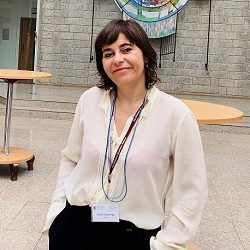 After a degree in Chemistry and several masters and postgraduates, Judit Camargo is now working on her PhD in Biomedical research for public health at the IMIM. Her professional career can be divided into two large blocks: the first years of experience as a quality control manager and in analytic development at several pharmaceutical laboratories, and the last 10 years working in operations and logistics, sales forecasts and business development at Ferrer. Camargo has founded Roka Furadada, a start-up that develops, manufactures and markets new molecules with therapeutic effects to prevent and treat sun-related skin diseases.
After a degree in Chemistry and several masters and postgraduates, Judit Camargo is now working on her PhD in Biomedical research for public health at the IMIM. Her professional career can be divided into two large blocks: the first years of experience as a quality control manager and in analytic development at several pharmaceutical laboratories, and the last 10 years working in operations and logistics, sales forecasts and business development at Ferrer. Camargo has founded Roka Furadada, a start-up that develops, manufactures and markets new molecules with therapeutic effects to prevent and treat sun-related skin diseases.
“I’ve always been entrepreneurial, starting up projects in every company I’ve worked for, so for me launching Roka Furadada is a natural evolution that had to happen in my career,” she explains. “Being an entrepreneur allows me to develop my skills in a very intensive way, making me very conscious of the impact I have, and, yes, I think being a woman gives me access to more opportunities than are available right now in organizations, both public and private,” highlights Camargo.
Mireia Cigarran
Founder of VRPharma
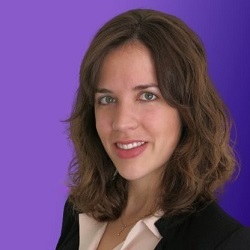
Mireia Cigarran has degrees in Chemical engineering and Industrial engineering, and worked a few years in the industrial sector before founding VRPharma: a company with the mission of improving patient experience in hospitals before, during and after medical procedures using innovative virtual reality contents.
“Nowadays, female entrepreneurs are gaining ground and I’ve had the opportunity to meet other women in a similar situation, including investors and mentors who have helped me in many ways to push forward. Emotionally, being a female entrepreneur is a roller coaster ride and it is very hard to combine with motherhood. This is why it is so essential to have the right people around you,” explains Cigarran.
The founder of VRPharma believes that “one clear advantage is just that: this network of women who support each other to open doors, improve and find solutions to obstacles.” Cigarran also notes the aid available for female entrepreneurs and emerging technology companies led by women, like training programs, for example. “In my dream scenario, the programs wouldn’t be necessary and they would all be for any sort of entrepreneur,” she admits. “For now, though, I have to say I haven’t experienced any disadvantages or uncomfortable situations, although I do sometimes see surprised faces when they see I’m the one heading up the project.”
Daniela Clape
Founder of Xpeer Meded
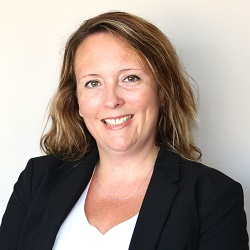 Daniela Clape has extensive experience in medical education at various agencies. Trying to make sense of her sector, she has just founded Xpeer Meded, which she defines as “a medical education revolution.” Xpeer is a platform to train doctors in a fun, simple way. The independent formats, based on tests, demand, personalized content and video micro-learning techniques, encourage doctors all over the world to participate.
Daniela Clape has extensive experience in medical education at various agencies. Trying to make sense of her sector, she has just founded Xpeer Meded, which she defines as “a medical education revolution.” Xpeer is a platform to train doctors in a fun, simple way. The independent formats, based on tests, demand, personalized content and video micro-learning techniques, encourage doctors all over the world to participate.
“I got the idea for Xpeer because I wanted to change this world for my children and for myself, and the best way to do that is by changing education. I’ve started with the sector I know best, continuing medical education, but I want all education to evolve so that my children’s education will be significantly different from the one I had. And that’s because I’m a woman, and a mother, too,” Clape explains.


